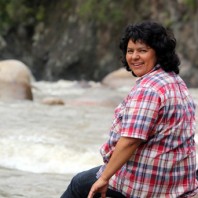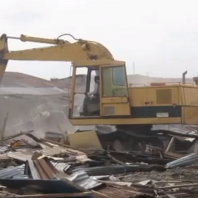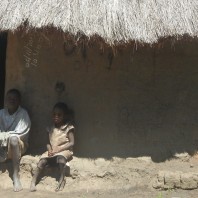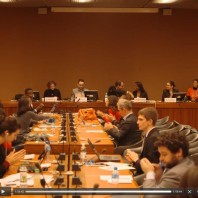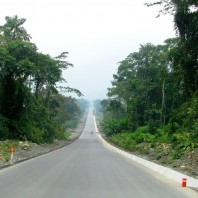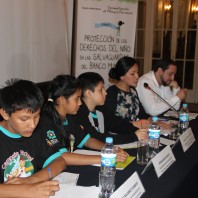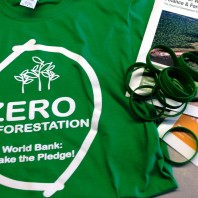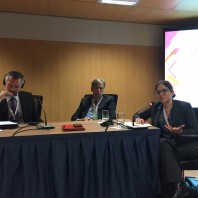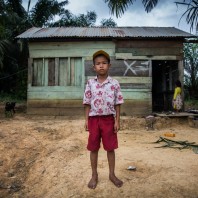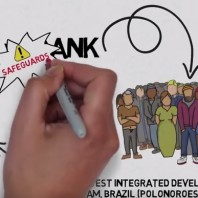In the weeks following the murder of Berta Cáceres, leader of the Civic Council of Popular and Indigenous Organisations of Honduras (Copinh) and leader of the resistance against the Agua Zarca hydroelectric dam on the Gualcarque river, there has been international outcry for justice for Berta and security for her colleagues. The Agua Zarca dam …
Residents of Lagos slums negatively impacted by recent World Bank-financed projects have come together to share their stories and add their voices to the review of the World Bank’s Environmental and Social Framework (a.k.a. the Safeguards). This video was submitted to the Safeguards consultation team as part of Phase 3 of the Safeguards Review. Share …
On December 28 2015, World Bank Group President Jim Yong Kim announced the cancellation of funding to the deeply troubled Uganda Transport Sector Development Project (TSDP), a project BIC’s child rights program has long been raising concerns about. The project cancellation was due to concerns over labor issues, social and environmental concerns, poor project performance, …
During the 4th Annual UN Forum on Business and Human Rights in Geneva from November 16-19, 2015, BIC’s Maggie Federici participated in a panel entitled Development Finance Institutions: Human Rights Obligations and the Right to Remedy. Development finance institutions (DFIs) have a mandate to alleviate poverty and promote sustainable development. But, in many cases, projects funded by …
World Bank president urged to commit to Zero Deforestation declaration, speak out on deforestation at COP21 in Paris Conserving forests is one of the most important climate change mitigation solutions, and is essential to addressing the World Bank’s twin goals of eliminating extreme poverty and promoting shared prosperity. As many progressive governments and private sector …
BIC Panels Explore Challenges and Ways Forward Around World Bank-Funded Mining Projects During the recent World Bank and IMF Annual General Meetings (AGM) in Lima, Peru, BIC’s Child Rights Program co-sponsored two events to discuss the World Bank’s engagement in mining projects in Peru and their impacts on children. Along with Save the Children, BIC …
Conserving forests is essential to achieving the World Bank’s twin goals of ending extreme poverty and boosting shared prosperity. A high percentage of the world’s impoverished people source food, medicine, building materials and fuel-wood directly from forests, and depend on the forest ecosystem services of water provision and purification, flood prevention, and climate change adaptation …
The Disability and World Bank Safeguards Campaign, together with its Peruvian focal point organizations Society and Disability and the Peruvian Down Syndrome Society, participated in the World Bank Annual Meetings in Lima, Peru October 6-9, 2015. The Campaign was joined by Catalina Devandas, Special Rapporteur on the Rights of Persons with Disabilities, to advocate for …
Picture of KEMAL JUFRI / Photo credit FERN AND ICIJ In the latest installment of “Evicted and Abandoned”, a year-long investigation into the ‘hidden toll of development’ financed by the World Bank, the International Consortium of Investigative Journalists, in collaboration with The Food & Environment Reporting Network, tells the story of Revan Pragustiawan, a little …
The World Bank has a complex track record with human rights and the environment. On one hand, they are one of the world’s most important development institutions, and their main goals are to eliminate poverty and boost prosperity. On the other, they have a history of sidelining the well-being of communities and ecosystems that are …

